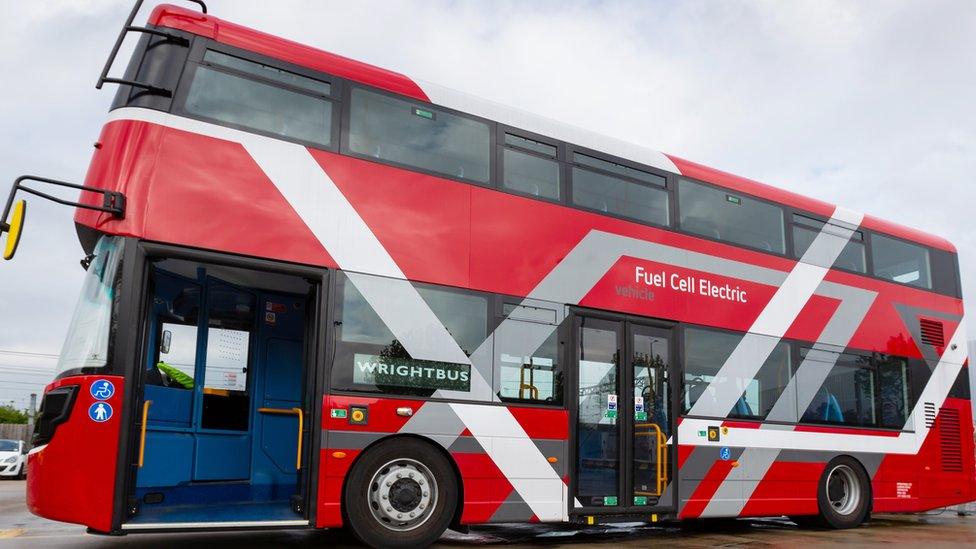Russia has cut off gas supplies to Poland and Bulgaria
- Published
- comments
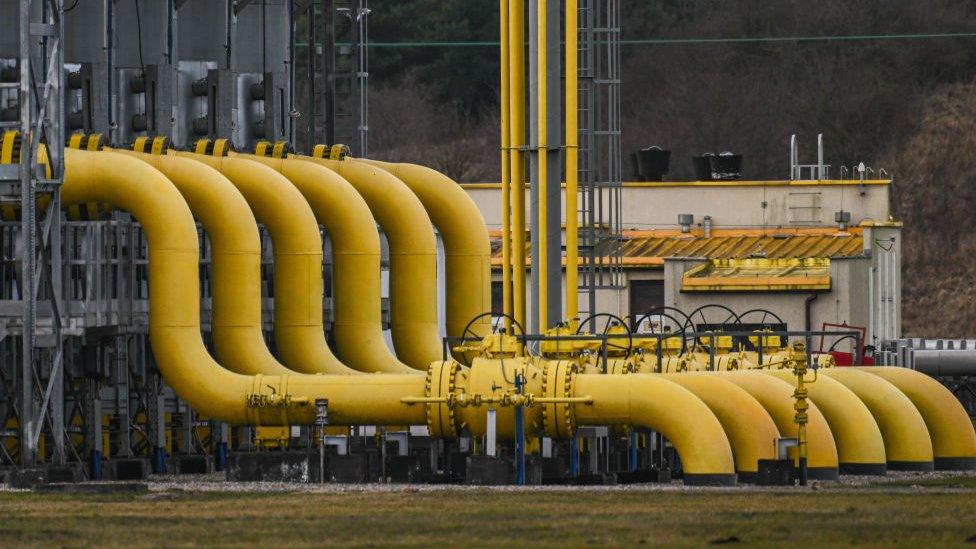
Poland imports gas from Gazprom via the Yamal pipeline
Russia has stopped gas supplies to Poland and Bulgaria.
The Russian energy company Gazprom says it has halted gas exports to the two countries because of their refusal to pay in roubles, the currency of Russia.
It comes after Russian President Vladimir Putin ordered "unfriendly" countries to pay for gas this way after Russia was sanctioned over the invasion of Ukraine. Sanctions are financial penalties placed on nations, businesses or people.
The announcement from Gazprom comes after many countries said they would move away from using Russian gas and oil.
So how reliant is Europe on gas from Russia? And what alternatives are there?
What is gas and where does it come from?
Gas is a type of fossil fuel. This means it can provide energy which powers homes, businesses and public services. It is also a massive contributor to pollution and global warming.
Natural gas is usually extracted by drilling into wells or if it's under a seabed, building a gas platform in the middle of the ocean.
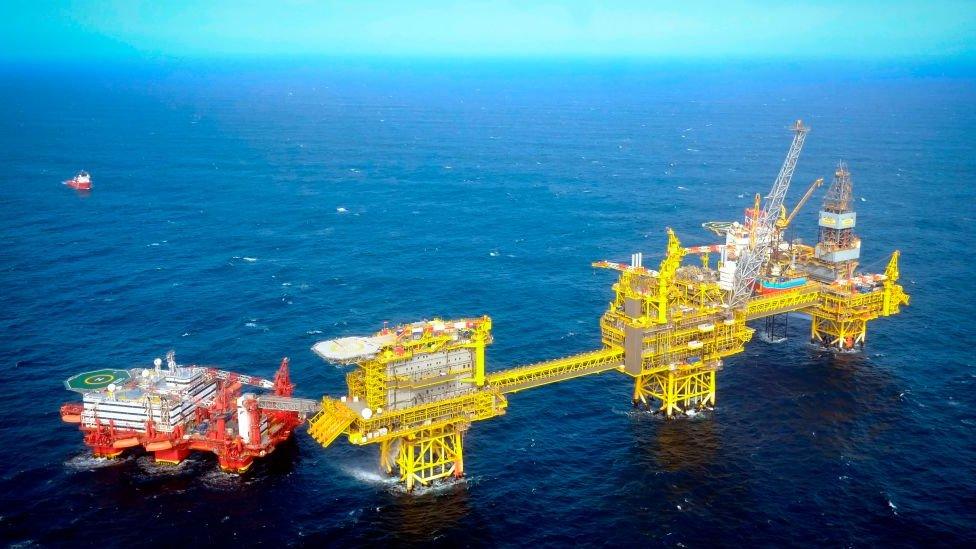
A lot of gas for the UK is extracted from the North Sea bed using platforms like this
About half of the UK's gas comes directly from the North Sea, which is the sea between the British Isles and north-western Europe.
A third comes from pipelines from Norway and the rest comes as liquefied natural gas (LNG) imports in tankers from Qatar, the US and others.
How much gas in Europe comes from Russia?
EU countries get about 40% of their gas directly from Russia. The UK get less than 5% but Italy and Germany rely heavily on Russia for their gas.
Russia sends gas to Europe through several main pipelines.
Just last year a huge pipeline was completed which would deliver gas from the Russian coast to Germany.
However, since the invasion of Ukraine, final approval of the Nord Stream 2 pipeline was put on hold.
What has happened?
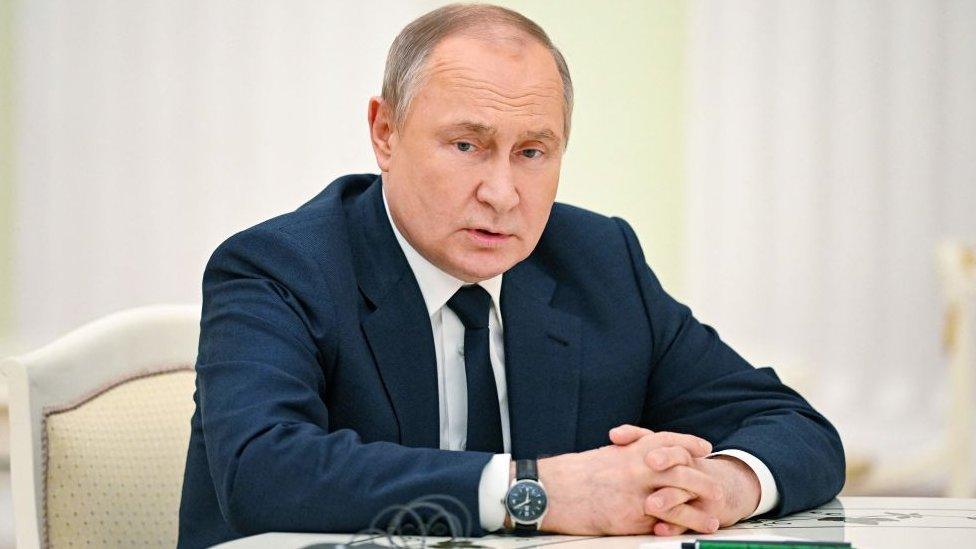
President Putin demanded countries paid for Russian gas with roubles
After Western powers placed financial sanctions on Russia, President Putin announced that "unfriendly" countries would have to pay for gas in Russian currency called roubles.
The Russian-state-owned energy company Gazprom has now said it has cut off supplies to Poland and Bulgaria and will not resume until payments are made in roubles.
Ursula von der Leyen, the president of the European Commission said the move was "unjustified and unacceptable" and said it showed the "unreliability" of Russia as a gas supplier.
So what are the alternatives to Russian gas?
Poland is building a new pipeline connecting it to Norway's gas fields, which is due to be complete in October 2022, and is ramping up supply from neighbouring Lithuania.
The EU has been in talks with countries outside of Europe to ensure supply. Existing gas exporters include Qatar, Algeria or Nigeria.
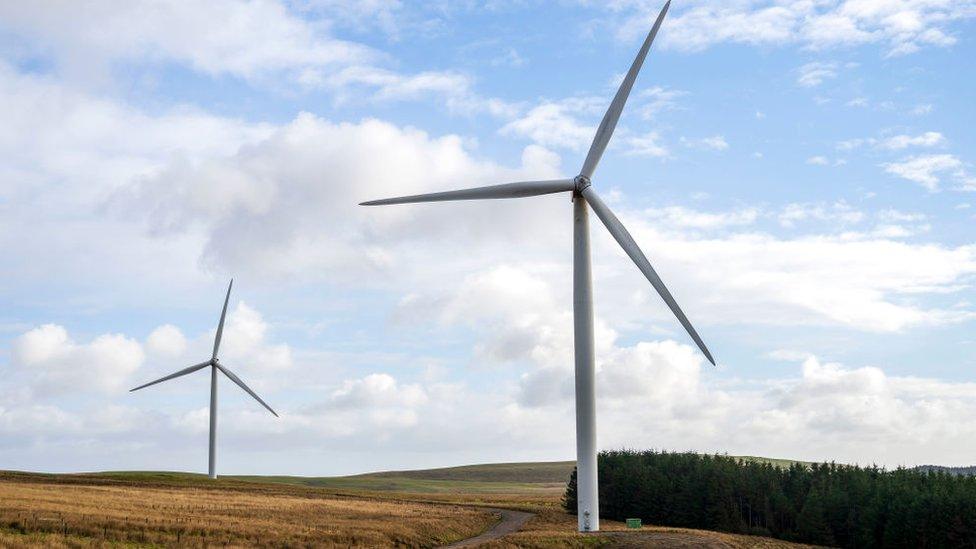
Many people say countries need to move away from gas altogether and start using renewable energy sources like wind power
Many experts have said that this reliance on fossil fuels and the political power it gives countries like Russia is exactly why countries need to move quickly over to renewable energy like wind and solar power.
In a plan to move away from Russian energy sources by 2030, the EU has called on ramping up of renewables and hydrogen.
What about the UK?
The UK government's most recent energy plan outlined an ambition for offshore wind to power all UK homes by 2030.
However because renewable energy takes time to roll out, in the short term fossil fuels like gas will still be used in the short term.
And although only 8% of UK oil and 5% of gas supplies come from Russia, it is still affected by rising prices worldwide and household bills have come under pressure.
- Published26 May 2023
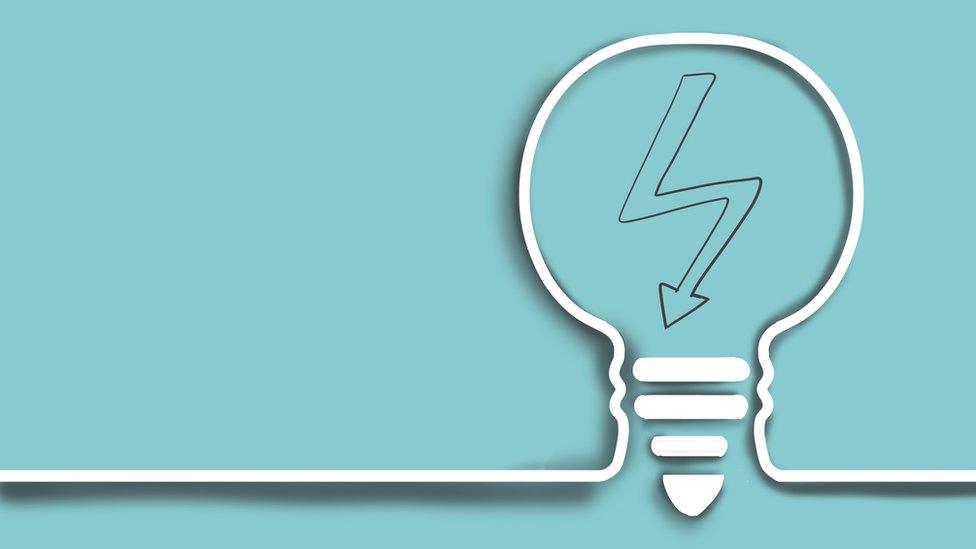
- Published7 February 2019
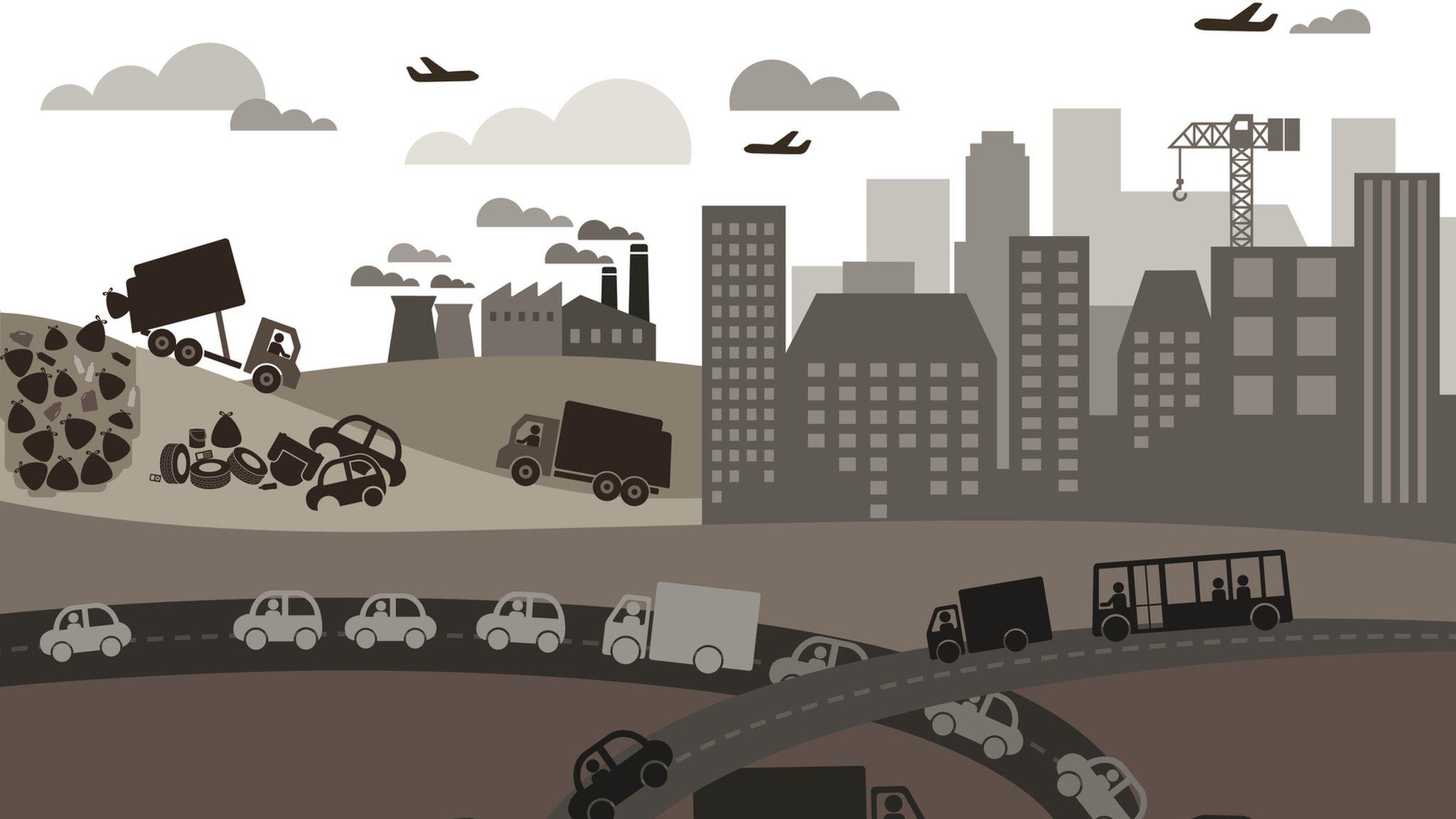
- Published11 May 2019
